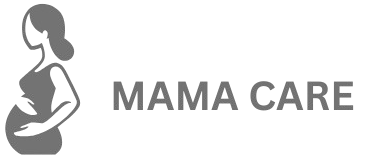For many moms, pelvic floor health is something they’ve heard about in passing—but rarely talked about openly. Yet, this group of muscles plays a huge role in your post-pregnancy recovery, daily comfort, and long-term well-being. If you’ve experienced leaking when you sneeze, lower back pain, or a feeling of heaviness “down there,” you’re not alone—and …
For many moms, pelvic floor health is something they’ve heard about in passing—but rarely talked about openly. Yet, this group of muscles plays a huge role in your post-pregnancy recovery, daily comfort, and long-term well-being.
If you’ve experienced leaking when you sneeze, lower back pain, or a feeling of heaviness “down there,” you’re not alone—and you don’t have to live with it.
🩺 What is the Pelvic Floor?
Your pelvic floor is a group of muscles and connective tissue at the base of your pelvis. They support your bladder, uterus, and rectum. During pregnancy and childbirth, these muscles stretch, weaken, and sometimes sustain injury.
When not functioning properly, it can lead to:
- Urinary or fecal incontinence
- Pelvic organ prolapse (a feeling of pressure or bulging)
- Chronic pelvic or back pain
🌱 How to Support Recovery Pelvic Floor After Birth
It’s completely normal for your pelvic floor to feel weak after pregnancy and delivery—but with time and care, it can heal.
Here’s how to support it:
✨ Start Slow
Give your body time to heal, especially in the first 6 weeks postpartum. Avoid heavy lifting and high-impact activities early on.
✨ Practice Gentle Breathing
Deep belly breathing (diaphragmatic breathing) helps reconnect your core and pelvic. Inhale into your belly, and exhale while gently engaging your pelvic muscles.
✨ Pelvic Floor Exercises (Kegels)
Once cleared by your doctor, you can start gentle pelvic floor contractions:
- Squeeze as if stopping urine flow.
- Hold for 3–5 seconds, then relax.
- Repeat 10–15 times, a few times a day.
👩⚕️ When to See a Specialist
Some issues won’t resolve on their own—and that’s okay. A pelvic floor physical therapist (PT) can assess and guide your recovery.
Seek help if you experience:
✅ Leaking urine or stool after 3 months postpartum
✅ A heavy or bulging feeling in your pelvis
✅ Difficulty doing daily activities due to weakness or discomfort
🧡 Final Thoughts
Your pelvic deserves as much care as any other part of your body. Recovery takes time, but with gentle exercises, patience, and professional support when needed, you can regain strength and confidence.
You don’t need to feel embarrassed—these issues are common, treatable, and nothing to be ashamed of.






